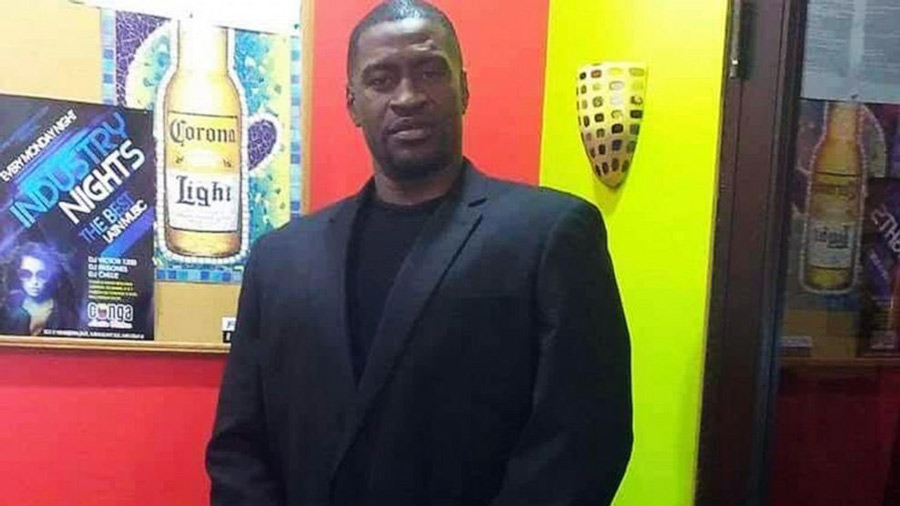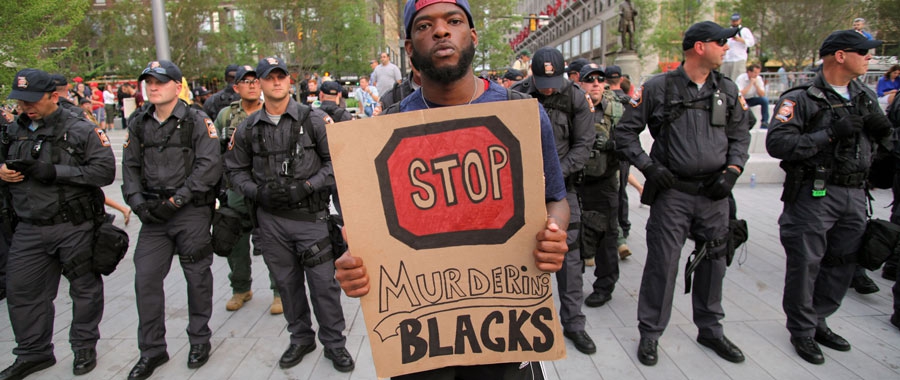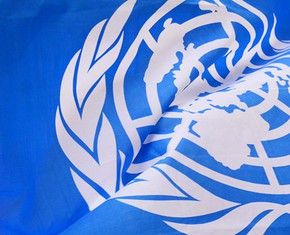The views expressed in our content reflect individual perspectives and do not represent the authoritative views of the Baha'i Faith.
The profound racial inequalities and vicious racial violence of the American body politic are on full display during the coronavirus pandemic and the increasing intolerance towards people of African descent. For individuals, the choice is to passively abide by the status quo of rampant inequality or actively upend it by changing systems of racial oppression and eliminating racial injustice at the root.
The Baha’i Writings indicate that each of us has the chance to demonstrate deeds that will confirm to everyone in our neighborhoods and communities that racism is an evil that destroys all of us. And as an individual, my spiritual progress is retarded if I don’t examine what and how it is that I may or may not have adequate resources, social mobility, and safety based on skin color. None of us exists in a vacuum where race is concerned. The eradication of racism is, therefore, a daily challenge.
The idea of eradicating racism in the United States reminds me of a phrase from the Baha’i Writings about rooting out the source of contention amongst humanity.
Baha’u’llah the prophet and founder of the Baha’i Faith wrote:
“O contending people and kindreds of the earth! Set your faces towards unity, and let the radiance of its light shine upon you. Gather ye together and for the sake of God resolve to root out whatever is the source of contention amongst you.”
What if “the source of contention” is racism? What if “a cause of contention” is white supremacy, defined in the Oxford English Dictionary as “the belief that white people are superior to those of all other races, especially the black race, and should therefore dominate society.”
What force can root out what the Baha’i Writings say is the “patent evil” of the “fallacious doctrine of racial superiority” from humanity?”
The Baha’i Writings state that every human being has both spiritual and material realities. In a talk in Minneapolis in 1912, Abdu’l-Baha, the son of Baha’u’llah said that “the body of man expresses certain material virtues, but the spirit of man manifests virtues that are ideal.”

If racism is a material manifestation, eradicating racism is a function of human virtue, and every human being can manifest the spiritual ideal of eradicating racism. Our individual human lives are the theaters where this spiritual effort takes place. Through spiritual learning and conscious effort, a white person can unlearn unconscious racism and demonstrate the fallacies of racial superiority through conscious actions. As racism has both material and spiritual dimensions, eradicating racism requires spiritual, material, individual, and collective efforts.
Unfortunately, today too many white Americans are unaware of the racial disparities caused by racism that black people must live with every day. These disparities cause pain, distress, deep sorrow, and as we now see, death.
“Actively unlearning racism requires challenging personal ’I’m not racist’ mantras.”
Despite the best intentions — manifested as mere words — racial disparities continue to fester in American society. The racial disparities in American healthcare have been revealed by the coronavirus pandemic. Opportunities exist now for white Americans to unlearn and to act to eliminate racism within their neighborhoods and communities on a grassroots level by a personal, consistent commitment to systemic, societal change.
However, for some, it may seem easier to mouth platitudes about eliminating racial prejudice than to consistently act on the fundamental belief that racial prejudice is evil. Actively unlearning racism requires challenging personal “I’m not racist” mantras.
Individuals do not just perpetuate the racial disparities experienced by people of African descent — racism is systemic. Racial inequality is experienced daily by people of African descent at all levels and functions of society. Unfortunately, racism is unconsciously — or consciously — perpetuated by individual white people who say, “I am not racist” and by those who stand by and watch silently racial inequalities persist., perhaps because of a lack of awareness of the oneness of humanity, and that all human life is connected.
Pervasive racism is experienced by people of African descent in the U.S. whether an individual white person believes it exists or not, whether that person thinks “I am not a racist.”
In the Baha’i Writings, deeds and actions are elevated over words in individual spiritual development. For a Baha’i, spiritual growth and development is a lifelong, 24/7, 365-day process that requires actively eliminating racial prejudice from the self and at all levels in society. It is a simple question for me as a person of African descent: How can I know if you do not believe in the superiority of one race over another if I don’t experience the equality and equanimity of your actions towards me and people who look like me? How can I believe that you value my wellbeing and safety as highly as you value your own? How do you “show up” as being actively engaged in challenging individual and systemic racism?
Baha’u’llah wrote that we should “Set before thine eyes God’s unerring Balance and, as one standing in His Presence, weigh in that Balance thine actions, every day, every moment of thy life. Bring thyself to account ere thou art summoned to a reckoning, on the Day when no man shall have the strength to stand for fear of God.”
If each of us is not focused on rooting out racism as a source of contention, how can I know that we are walking together towards the unity of humanity? Baha’u’llah has removed the possibility of any of us watching and waiting on the sidelines for systemic change to eradicate racism. He wrote: “Let deeds, not words, be your adorning.”
All Americans must transform speech to actions that consistently demonstrate the mutual care, concern, respect, and commitment to change required to mitigate the racial disparities we see in health care, employment, housing, education, and community policing.
The Baha’i Writings ask us to be “anxiously concerned with the needs of the age we live in” and to “center our deliberations on its exigencies and requirements.” Consequently, eradicating racism is a daily endeavor, an urgent undertaking for every man, woman, and child in this country. Being informed about the history of racism and its 400-plus year legacy in American society at all levels, and learning about practical, personal ways to eradicate it — within a framework of the oneness of humanity — is an essential prerequisite for global peace and security.
The Baha’i framework, with no clergy and a divinely ordained administrative order, provides opportunities for anyone to eliminate the patent evil of racism at a grassroots level in their neighborhood and community. As Baha’u’llah wrote, “every good thing is of God and every evil thing is from yourselves,” through spiritual education and community service.
There is a quotation from Shoghi Effendi, the Guardian of the Baha’i Faith, which reminds me of the expectations of this uniquely personal and collective endeavor Baha’is are called to demonstrate: “One thing and only one thing will unfailingly and alone secure the undoubted triumph of this sacred Cause, namely, the extent to which our own inner life and private character mirror forth in their manifold aspects the splendor of those eternal principles proclaimed by Baha’u’llah.”
The requirements to act on our beliefs as people committed to eliminating racism must extend to challenging systemic racism within our current reality — wherever we live — such as calling out and changing healthcare disparities between white and black communities. Abdu’l-Baha wrote that “The will is what we do, the understanding is what we know” and that “will and understanding must be one…intention brings attainment.”
Do we individually and collectively have the courage and the will to demonstrate our daily commitment to eliminating racial prejudice? The Universal House of Justice, the international global governing body of the Baha’is of the world, wrote in 2010 that “passivity is bred by the forces of society today.”
The global Baha’i community is learning how to think, study, and act alongside others to serve our communities. We’re “resisting passivity” by learning to model eradicating racism through personal and collective initiatives, valuing and respecting each others’ differences, talents, and capacities to serve our local communities and to actively transform them into more equitable and just places to live. How? Through knowing ourselves well enough as both material and spiritual human beings, through actively understanding the behaviors which lead us closer to divine virtues and avoid those behaviors that lead to the self-destructive, inhuman behavior of racism.
The Baha’i Writings state that “the days of idle worship have ended and nothing but the purest deeds can ascend to the Kingdom on High.” As a member of the human family and as a person of African descent, I strongly encourage those who also care deeply about the racial crisis in American society to demonstrate by their inner and outer actions a strong commitment to the elimination of racial prejudice.
To me, the daily, profound effort to eliminate racism involves changing actions and behavior. Then, and only then, will our deeds, as Shoghi Effendi wrote, “mirror forth in their manifold aspects the splendour of the eternal principles proclaimed by Baha’u’llah.”
















Comments
Sign in or create an account
Continue with Googleor